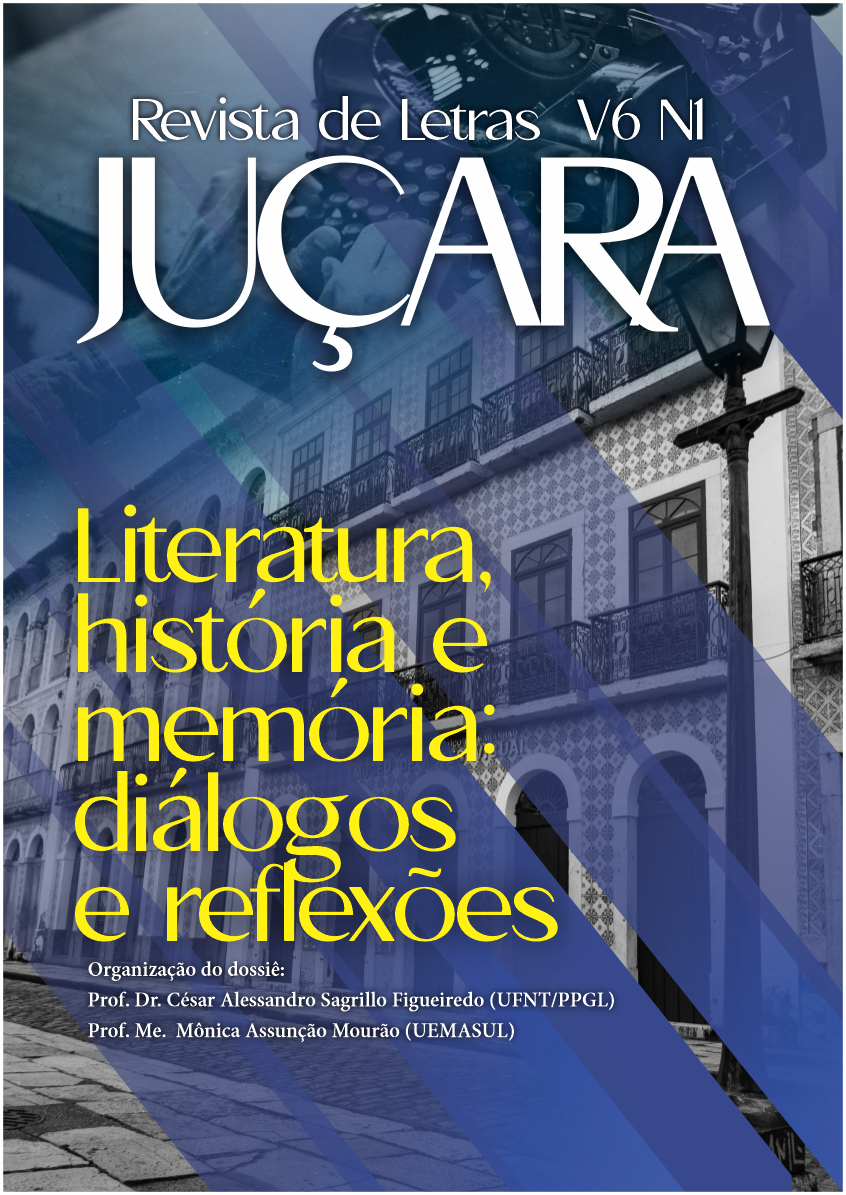LITERATURA E HISTÓRIA: A REALIDADE DAS MULHERES ÓRFÃS NO BRASIL COLONIAL NO LIVRO DESMUNDO
DOI:
https://doi.org/10.18817/rlj.v6i1.2835Resumo
O estudo desenvolve-se a partir da análise interpretativa do livro Desmundo (1996) da escritora Ana Miranda[1]. O propósito é apontar a relevância da narrativa literária para o entendimento da experiência histórica e cultural de mulheres no Brasil colonial. Procura-se articular o diálogo interdisciplinar entre literatura e história, tendo por foco a narrativa do romance acerca da vinda de jovens órfãs de Portugal para o Brasil com o intuito de casamento. Oribela, a narradora-personagem, conta a história colonial a partir do seu ponto de vista, explorando o tema da submissão feminina na sociedade dentro desses marcos históricos. Assim, ao exploramos os diálogos profícuos entre narrativa histórica e narrativa literária, abrimos espaço tanto para problematizar os modos tradicionais de representação do tempo, como também a própria riqueza da obra para o entendimento do universo cultural, social e subjetivos das mulheres no tempo. A metodologia consistirá em uma reflexão interpretativa com base na pesquisa bibliográfica. Como referencial teórico de abordagem, dialogaremos com: Del Priore (1993), Ferreira (2013), White (1994), Burker (1992), Barros (2010), entre outros.
[1] A autora se tornou conhecida no cenário literário em 1978, com o livro Poética Anjos e Demônios, depois com Boca do inferno (1989), ganhou o prêmio Jabuti. Outras obras suas, são: O Retrato do Rei (1991), Sem Pecados (1993), A última Quimera (1995), Desmundo (1996), Amrik (1997), Clarice (1998) e Dias & Dias (2002).
Downloads
Publicado
Como Citar
Edição
Seção
Licença
Copyright (c) 2022 Francisca Katrine de Carvalho Souza, Wheriston Silva Neris

Este trabalho está licenciado sob uma licença Creative Commons Attribution 4.0 International License.
A submissão de originais para a Revista de Letras Juçara implica na transferência, pelos autores, dos direitos de publicação. Os direitos autorais para os artigos publicados nesta revista são do autor, com direitos da revista sobre a primeira publicação. Os autores somente poderão utilizar os mesmos resultados em outras publicações indicando claramente a Revista de Letras Juçara como o meio da publicação original.


